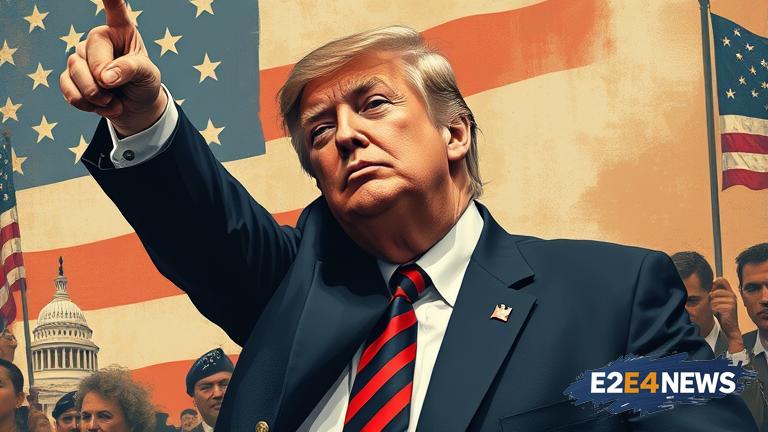The recent push for Americanism by the Trump administration has drawn comparisons to the dystopian themes presented in George Orwell’s classic novel, 1984. The concept of Americanism, which emphasizes the importance of national pride and loyalty, has been a cornerstone of Trump’s presidential campaign and subsequent policies. However, critics argue that this ideology bears a striking resemblance to the totalitarian regime depicted in Orwell’s novel, where independent thought and dissent are suppressed in favor of blind patriotism. The Trump administration’s efforts to promote Americanism have been met with skepticism, with many expressing concerns about the potential erosion of civil liberties and the suppression of dissenting voices. The administration’s stance on issues such as immigration, trade, and national security has been characterized as overly nationalistic, with some arguing that it perpetuates a divisive ‘us versus them’ mentality. Furthermore, the emphasis on Americanism has been criticized for its potential to marginalize minority groups and stifle diversity. The Orwellian echoes of Trump’s Americanism are particularly evident in the administration’s handling of the media, with the president frequently labeling critical news outlets as ‘fake news’ and ‘enemies of the people.’ This rhetoric has been likened to the propaganda tactics employed by the totalitarian regime in 1984, where the government exercises total control over the flow of information. The implications of this ideology are far-reaching, with potential consequences for the health of democracy and the protection of individual freedoms. As the Trump administration continues to promote Americanism, it remains to be seen whether the concerns about Orwellian undertones will prove to be justified. The debate surrounding Americanism has sparked a national conversation about the role of patriotism and nationalism in modern society. While some argue that Americanism is essential for promoting national unity and pride, others contend that it can be used as a tool for suppressing dissent and promoting a narrow, exclusionary worldview. The Trump administration’s push for Americanism has also been criticized for its potential to undermine the principles of democracy, including the protection of minority rights and the promotion of diversity. In addition, the emphasis on Americanism has been linked to a rise in nationalist sentiment, with some arguing that it has contributed to a surge in hate crimes and xenophobic attacks. The administration’s response to these concerns has been dismissive, with officials arguing that Americanism is essential for promoting national security and protecting American interests. However, critics argue that this stance is overly simplistic and fails to account for the complexities of modern society. As the debate surrounding Americanism continues, it is essential to consider the potential implications of this ideology for democracy, individual freedom, and national unity. The Trump administration’s push for Americanism has sparked a national conversation about the role of patriotism and nationalism in modern society, with many expressing concerns about the potential consequences for democracy and individual freedom. The emphasis on Americanism has been criticized for its potential to suppress dissenting voices, marginalize minority groups, and stifle diversity. The Orwellian echoes of Trump’s Americanism are a cause for concern, with many arguing that the administration’s ideology bears a striking resemblance to the totalitarian regime depicted in 1984. The implications of this ideology are far-reaching, with potential consequences for the health of democracy and the protection of individual freedoms. In conclusion, the Trump administration’s push for Americanism has sparked a national conversation about the role of patriotism and nationalism in modern society, with many expressing concerns about the potential consequences for democracy and individual freedom. The emphasis on Americanism has been criticized for its potential to suppress dissenting voices, marginalize minority groups, and stifle diversity, raising important questions about the implications of this ideology for modern society.





